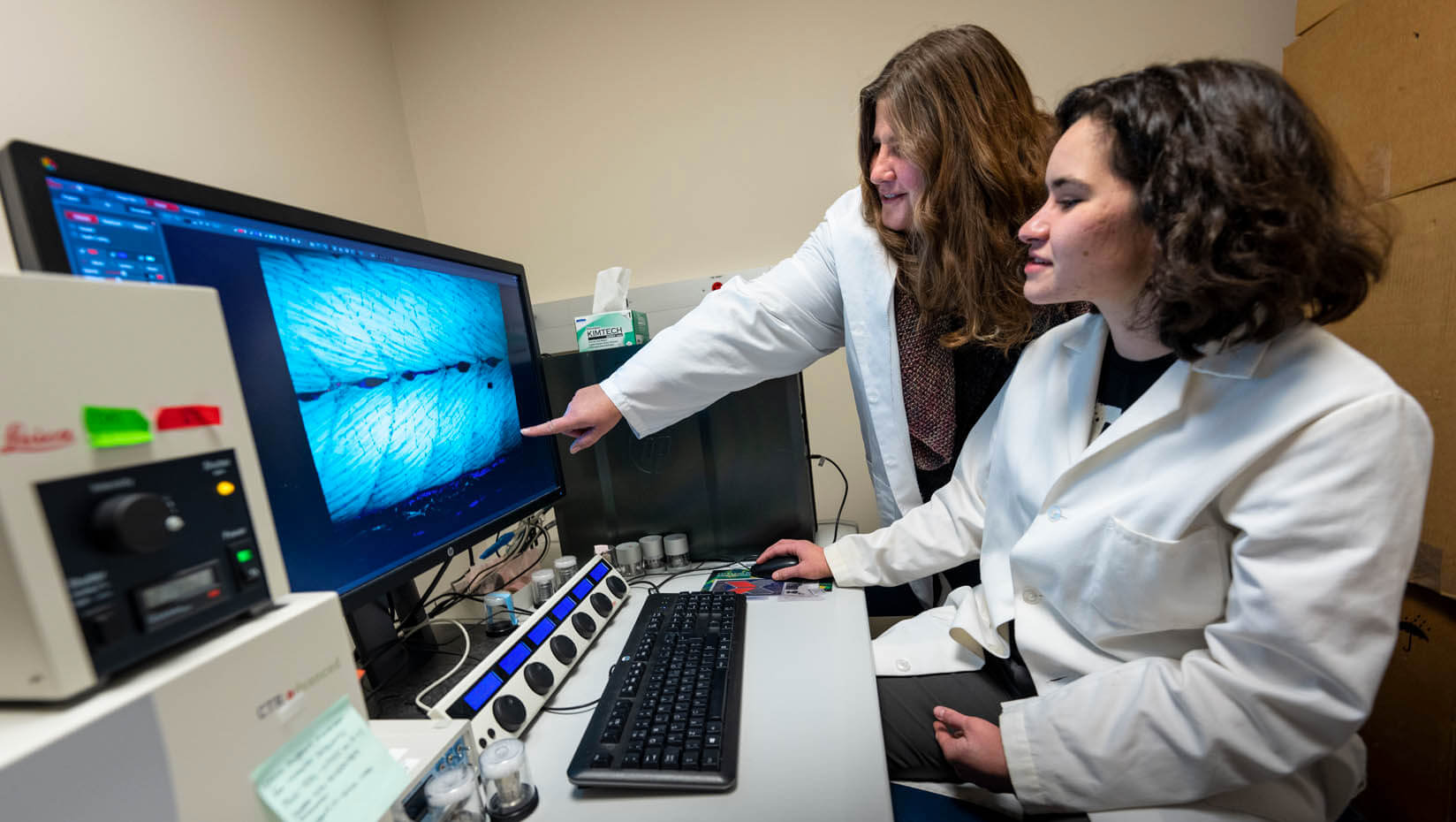
UMaine awarded $11.3 million from NIH to support biomedical research
Editor’s note: This story was updated March 31, 2023.
The University of Maine has received a $11.3 million Center of Biomedical Research Excellence (COBRE) award from the National Institutes of Health (NIH) to support interdisciplinary biomedical research.
The COBRE award will focus on research about the mechanisms that regulate cellular behavior in response to cues from outside the cells, from the impact of persistent viral infections on cell systems to the mechanisms that lead to muscle cell development. The research has the potential to inform future treatment of infectious diseases, neuromuscular disorders and muscle aging and regeneration.
“UMaine is the only institution in the state that grants doctoral degrees in biomedical science and biomedical engineering through its Graduate School of Biomedical Science and Engineering,” says Kody Varahramyan, vice president for research and dean of the UMaine Graduate School. “This COBRE, which will be UMaine’s first, will transform UMaine’s ability to serve as the academic leader for biomedical research in Maine and feed the growing biomedical research industry in Maine. This research will elucidate basic biological mechanisms underlying cell behavior and also has the potential to inform the future treatment of infectious diseases, neuromuscular disorders, and muscle aging and regeneration.”
The COBRE award is led by Clarissa Henry, professor of biological sciences in the School of Biology and Ecology and director of the Graduate School of Biomedical Science and Engineering at UMaine.
“This award will transform the landscape of biomedical research at the University of Maine and foster innovation in the life sciences statewide,” Henry says.
It will primarily support five research projects led by early career investigators from UMaine and the Mount Desert Island Biological Laboratory, including UMaine’s Melissa Maginnis, Jared Talbot, Joshua Kelley and Ben King, as well as Romain Madelaine at the MDI Bio Lab.
“The MDI Biological Laboratory is very pleased to collaborate on this Maine-based research initiative,” says MDI Bio Lab President Herman Haller. “Romain Madelaine’s work on the cellular mechanisms of muscle regeneration holds great promise for improving the way we age. The COBRE award will accelerate his discoveries and more by university faculty and students.”
As program director for the COBRE award, Henry will mentor the research team as they develop their projects.
The award also aims to bolster UMaine’s ability to serve as the academic leader for biomedical research in the state and feed its growing biomedical research industry through the Institute of Medicine and College of Natural Sciences, Forestry, and Agriculture. For example, this award will support the creation of a Microscopy and Image Analysis Core headed by Rob Wheeler, associate professor of microbiology, that will provide access to super-resolution confocal microscopy and support unbiased image analysis.
The award will also support burgeoning biomedical researchers through assistantships in the Graduate School of Biomedical Science and Engineering (GSBSE). Currently, UMaine is the only institution in the state that grants doctoral degrees in biomedical science and biomedical engineering.
“One of the most exciting aspects of this grant is the explicit integration of research with training of the next generation of biomedical scientists,” says Henry. “The University of Maine has a phenomenal cluster of early career biomedical faculty and I am thrilled that this award will propel their research careers, increase campus and statewide collaboration, and add meaningful undergraduate and graduate research experiences.”
The award starts April 5, 2023.
Contact: Sam Schipani, samantha.schipani@maine.edu
